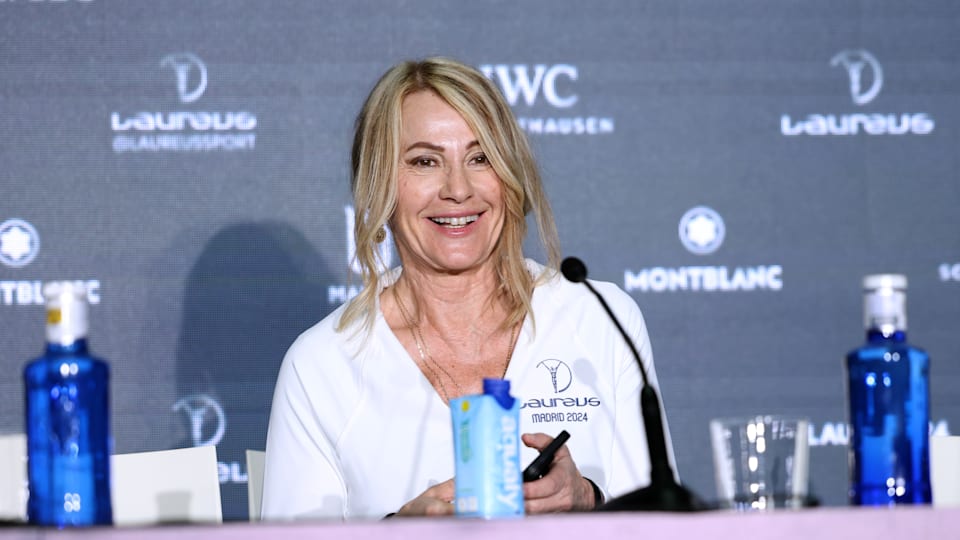Olympic and Laureus legends celebrate gender parity at Paris 2024: “The conversation is changing”

Nadia Comaneci did not have many female role models to look up to when she first stepped onto the Olympic stage half a century ago.
Fourteen years old at the time, the artistic gymnast simply walked out on the mat and stunned the world.
“Forty-eight years ago, when nobody talked about gender equality. I just went and did my thing,” the Romanian sports legend said at a press conference ahead of the 2024 Laureus Awards in Madrid.
For Comaneci, doing "her thing" meant winning three Olympic gold medals with a streak of never-before-done perfect scores, all as a teen. It was a bold example for other athletes to follow and one of the milestones that helped to move female sport forward.
Twelve Olympic cycles since Comaneci’s historic run at Montreal 1976, Paris 2024 is set to be the first Olympics to achieve full gender parity.
“Now I look back and I'm really glad because I was able to do something that nobody in the world, no male, did it,” Comaneci said. “Sport gave me a voice when I was 14. I'm proud of that girl who just opened doors of opportunities for women to play sport.”
Paris 2024 will be the first Olympic Games with an equal number of quota spots available for male and female athletes. For Olympic heptathlon champion Jessica Ennis-Hill, it is a step forward for more recognition of women's sport.
“We've seen such a change in the way women's sport is viewed and marketed and I see that change continue and I think it's great,” the British athletics star said. “The Olympics is always that fantastic opportunity to showcase some of the minority sport and create amazing female role models.”
Michael Johnson has already found his.
USA’s four-time Olympic sprint champion was one of 18.7 million viewers who were closely following the 2024 NCAA Division 1 women’s basketball tournament in March and April.
“More people watched the women's tournament than watch the men,” Johnson said. “I can give you five names of the women that were playing in that tournament. I can tell you one name of a male athlete playing in that tournament. So, it's changing. It's changing rapidly in professional sports. It'll be very interesting to see how that affects the Olympics.”
While the women’s NCAA tournament set a record for viewership, Johnson stressed that the inequality of women’s sport and the lack of investment remain issues to tackle.
The first step that anyone can take to help, he said, is to tune in.
“The conversation is changing, which has been great,” Johnson said. “Typically, it's been well, nobody watches women's sport so that's why there isn't the investment in women's sport. If you don't have the investment in women's sport, nobody's going to watch women's sport.”
Athletes also see the growing spotlight on women’s sport as an opportunity to talk about the special issues that female athletes face, such as balancing training with motherhood.
Here too, there is some positive change from the days when Comaneci, Johnson, and Ennis-Hill ruled the Olympic world.
“When we go back to talking about having children within school, you see the changes happening around that," Ennis-Hill, a mother of two, said. "They're allowing athletes to breastfeed in the Village and all these subtle changes happening. And I think that's a real positive for women's sport."